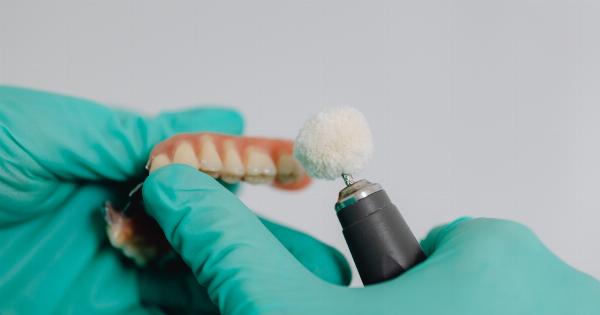Dental implants are a modern and effective solution for replacing missing teeth. Whether you have lost a tooth due to an injury, tooth decay, or other dental issues, dental implants can restore your smile and improve your oral health.
In this comprehensive guide, we will cover everything you need to know about dental implants, including their benefits, the procedure, aftercare, and more.
What are dental implants?
Dental implants are artificial tooth roots made of titanium. They are surgically placed into your jawbone to act as a strong foundation for replacement teeth.
These implant posts fuse with the surrounding bone through a process called osseointegration, creating a stable base for artificial teeth or other dental restorations.
Benefits of dental implants
Dental implants offer numerous benefits over other tooth replacement options. Here are some of the advantages:.
- Improved appearance: Dental implants look and feel like natural teeth, enhancing your smile and facial aesthetics.
- Enhanced comfort: Implants become a part of your mouth, eliminating the discomfort of removable dentures.
- Better speech: Unlike ill-fitting dentures, implants allow you to speak clearly and confidently without worrying about slurred speech.
- Improved oral health: Dental implants don’t require altering adjacent teeth, thus preserving your overall dental health.
- Increased durability: With proper care, dental implants can last a lifetime, making them a long-term investment.
The dental implant procedure
The dental implant process typically involves several steps, including:.
- Initial consultation: Your dentist will evaluate your oral health, take x-rays, and discuss treatment options.
- Implant placement: In a surgical procedure, the dental implant is placed into the jawbone under local anesthesia. The implant will then need time to osseointegrate, usually taking a few months.
- Abutment placement: Once osseointegration is complete, an abutment is attached to the implant, which protrudes above the gumline. The abutment serves as a connector between the implant and the artificial tooth.
- Artificial tooth placement: Finally, a custom-made artificial tooth or crown is attached to the abutment, restoring the function and appearance of your natural teeth.
Candidates for dental implants
While dental implants are a suitable option for most patients, there are certain requirements to be considered a candidate for the procedure. Ideal candidates for dental implants:.
- Have good oral and overall health
- Have sufficient jawbone to support the implant
- Do not suffer from uncontrolled chronic conditions such as diabetes or heart disease
- Do not smoke or are willing to quit smoking
- Are committed to maintaining good oral hygiene
Aftercare and maintenance
Proper aftercare is essential to ensure the longevity of dental implants. Here are some important tips:.
- Follow your dentist’s instructions regarding oral hygiene, including brushing, flossing, and using a mouth rinse.
- Avoid chewing hard foods or ice that could damage the implant or restoration.
- Visit your dentist regularly for check-ups and professional cleanings.
- Inform your dentist if you experience any discomfort, pain, or unusual changes in your mouth.
Possible complications and risks
Although dental implants have a high success rate, there are potential risks and complications associated with the procedure. These may include:.
- Infection at the implant site
- Implant failure
- Bone loss or deterioration
- Nerve damage
- Sinus problems (in the case of implants in the upper jaw)
It is crucial to discuss these risks with your dentist before proceeding with the implant surgery.
Cost of dental implants
The cost of dental implants can vary depending on several factors, including the number of implants required, any additional procedures needed, location, and the dentist’s experience.
Dental insurance may cover a portion of the cost in some cases, so it is recommended to consult your insurance provider.
Find a qualified dentist for dental implants
Choosing a skilled and experienced dentist is crucial for the success of your dental implant treatment. Consider the following when searching for a dentist:.
- Check the credentials and qualifications of the dentist.
- Read reviews and testimonials from previous patients.
- Discuss treatment options and expected outcomes during the initial consultation.
- Ask about the dentist’s experience with dental implant procedures.
- Consider the dentist’s location and availability to ensure convenience.
Conclusion
Dental implants are a reliable and long-lasting solution for replacing missing teeth and restoring your smile.
With their numerous benefits, including improved appearance, enhanced comfort, and better oral health, dental implants are worth considering for anyone seeking tooth replacement. However, it is essential to consult with a qualified dentist to determine if you are a suitable candidate for the procedure and to understand all potential risks and complications.























